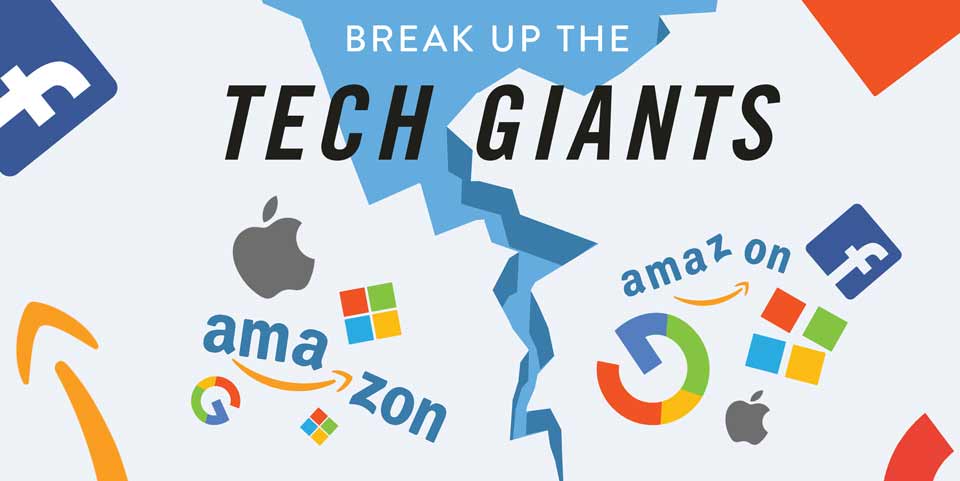It’s great to see a new generation of Indian tech companies taking form in a sphere that has typically been dominated by large global high-tech companies like Meta, Google, and Apple. One of those companies, Zoho Corporation, based in Tamil Nadu and among the many companies that are part of this new wave of digital undoing in India, is engaging primarily with global companies with a very high ethical standard and developing innovative solutions quickly and with a great level of responsiveness. Zoho’s Arattai: How Indian Startups Are Competing with Global Tech Giants highlights India’s growing innovation power as homegrown tech firms rise to challenge international dominance with privacy, trust, and innovation.
In addition to their other apps, Zoho just launched one of the most unique messaging applications to date in Arattai, which is a custom app built to be secure for anyone looking for an alternative to WhatsApp or Telegram, which are often users’ first options for privacy, but offers far more features than just an app for messaging. Arattai is a perfect example of the Indian start-up ecosystem at a time when it could provide direct competition for global high-tech companies in the global high-tech ecosystem.
The Genesis of Arattai
At the start of 2021, following WhatsApp’s update in privacy terms, there were numerous media reports about the perceptions held by Indian users during the update of the privacy policy being negative. Indian users had general concerns about perceived privacy and whether user data would be utilized and shared about any users for ad insight purposes, etc. In light of this concern about privacy, some local tech entrepreneurs started to view this as an opportunity to develop an Indian alterative that would be more privacy respectful that adheres to these concerns.
In the enterprise software vendor community, Zoho is one of the more successful vendors in terms of their focus on once again addressing users’ needs for inquiries and concerns, which have mainly focused on a more privacy focused alternative. Zoho has build a messaging app called Arattai (chat) in Tamil, which was first developed in 2020 as an internal messaging app just for Zuhoo’s employees, and has grown into a public messaging app in 2021. Arattai was developed by a team of Zoho engineers as a response by the company to the privacy concerns of users in order to fill a gap in the ecosystem for secure messaging app vs an ad-based alternative.
What Makes Arattai Different?
Arattai is much more than just a clone of WhatsApp. It is part of a larger strategy of Zoho’s work to build an Indian digital ecosystem that is ethical, sustainable, and not owned by data owners. Here is how it varies:
1. Privacy First:
Arattai is consistent with many years of Zoho not using third-party trackers, and certainly not one that sells your data. All your messages are end-to-end encrypted (that means no one can read your messages other than the sender and recipient).
While many of the international services are regularly and systematically selling your data to monetize it through advertising revenue, Zoho is either sitting on the subscription or freemium model; which effectively means, in principle, your private data is not commercially exploited.
2. Made in India, made for India:
Arattai is designed and hosted only inside India. Arattai is one of the few solely indigenous messaging applications. The application design is for the Indian internet infrastructure, which can be lower bandwidth.
By design the name, design interface, and features can each have an Indian sensibility that may cause it to resonate more with users.
3. Integration into the Zoho Ecosystem:
A significant advantage for Zoho as a company is its extraordinarily large library of 55+ business and productivity applications – from CRM, to email to cloud storage. Arattai takes great advantage of that entire ecosystem. Users will have comfort knowing it is fully integrated with business communication tools like Zoho Cliq and their Zoho Mail accounts, that supplements their experience with any personal or business communication that they may do. The integration suite Zoho offers allows it to rival what would normally be a mediocre messaging app.
4. Data Localization
Arattai reinforces India’s increasing focus on data sovereignty because all information pertaining to users will be stored in India. Hence, user data and messages will be subject to Indian data protection law and will not be transmitted outside of India to servers or otherwise.
This localization builds trust with users and is consistent with the government vision of Atmanirbhar Bharat (self-reliant India).
The Broader Significance: India’s Tech Independence
Arattai is also part of the bigger picture of Indian technology self-sufficiency. In a very short time, we have seen home-grown alternatives spring up in almost every technology market where a previous imperial Western megacorp or foreign entity had claimed ownership:
Koo as a substitute to Twitter (now X);
Chingari and Josh as replacements to Tik Tok;
Dukaan and BharatPe as alternatives to Shopify and Paypal;
Zoho and Freshworks as substitutions for Salesforce and Hubspot.
It is now all around us that Indian startup engagement is no longer in utilizing foreign technologies, it’s now about producing and innovating.
Taking an example of Zoho as a philosophy of this movement. Zoho is more commonly known for being anti-foreign investors and wanting to grow a company on organic and/or home-grown methodologies – where the founder and CEO Sridhar Vembu clearly expresses his thoughts in a direct and honest reflections about rural development, and moving to helping people build locally, in a village in Tamil Nadu, and thus a claim of degree of world class.

Competing with the Giants: Challenges and Strategies
While Arattai aims to be India’s version of WhatsApp, Telegram and Signal, we find this difficult to digest. Their subscriber bases are massive and all the recent capital from deals with venture money mean they don’t even have to think about timelines for product development, and/or running profitable business operations in the near future. So what can, what should, Arattai (and other similar types of Indian start-ups) test for adoption to equate it to competition?
1. Trust & Transparency
Trust is a new currency. Users are more aware, and maybe even conscientious, of what is happening with their data, and does a technology with scale, present a disaster or at some level of scale, a negative user experience, at a minimum, around privacy? Companies such as Zoho, are putting their stake in the ground to focus on trust, or their own version of equitable ways to operate.
2. Local features
Localisation is a key sustainable differentiator/competitive advantage. Arattai continues to grow and/or scale, because of features related to a local, or regional, language; UPI payments, or made in India, or even, document verification features, and business chat features.
Addressing local needs will likely create an additional emotional attachment to Indian users that global apps cannot respond to at the same level of depth.
3. Strong Government and Policy Support
The Digital India and Atmanirbhar Bharat initiative introduced by the Indian government will enhance the environment to support domestic startups. Being supported with funding, relief of some regulations for ease of doing business, and government incentives to support startups make this concern for a startup an easier and reasonable expectation whether you are building one platform or many, like Arattai.
4. Collaborate vs Compete
To a degree, it may be advantageous to be competitive as an Indian startup as opposed to copying every other similar global service. For example, if Arattai worked collaboratively with a digital payment service like BHIM UPI, or DigiLocker, and potentially secure documents for signing remotely that are a Digilocker which is an Australian internet tech company that provides the code to connect securely to share and sign documents or remotely sign Documents on some similar, DocuSign or similar type applications.
How Zoho’s Arattai Proves Indian Startups Can Compete with Global Tech Giants
This collaboration would help provide more functionality, and potentially keep users chains within Indian-based digital applications or ecosystems. Zoho’s Arattai: How Indian Startups Are Competing with Global Tech Giants symbolizes growing confidence in India’s emerging digital capabilities. The brains behind Arattai have developed it into a credible, Indian alternative to WhatsApp and Telegram. Arattai is a messaging service that is “Made-in-India” through Zoho Corporation. Arattai supports the principles of privacy, security, and data localization aligned with the company’s overall mission for digital self-reliance, and that the data of all users is kept safer within the sovereignty of the country.
The emergence of Arattai is part of the continuing upward trend that Indian companies are ready and willing to compete in a serious way against multi-national tech companies. Indian start-ups like Koo in social media, and most recently BharatPe in fintech, are now able to disrupt. Zoho’s Arattai: How Indian Startups Are Competing with Global Tech Giants” reflects the growing confidence of India’s tech ecosystem and its determination to build world-class innovations rooted in self-reliance.
How Arattai Reflects Zoho’s Core Philosophy
Arattai is not simply an independent company, but a broader vision that carries an ethical, sustainable vision to Zoho and to tech. In contrast to many tech companies in Silicon Valley who express the ethos of growth at all costs, Zoho considers what is necessary to exist as a sustainable revenue model over the longer duration.
No Advertising, No Tracking Zoho has never been an advertisement based company. By not being an advertisement based company, it allows Zoho to create experiences focused on the user, not on how to keep the user on the screen, how to get them to click on advertisements, and to continuously track their behavior on the screen (while on screens).
Empowering Rural Talent and De-Centralized Sridhar Vembu’s commitment to part of running Zoho out of rural Tamil Nadu is not simply a commitment to values, it is also a competitive differentiator, tapping into people’s talent in rural India, not just urban technology ethos process. Innovation can and does exist outside of an urban technology ethos process.
Bootstrapped and Profitable Zoho is rare for a large Indian technology company, as it has been 100% bootstrapped.
Conclusion
Zoho’s Arattai marks the commencement of India’s digital future: an India that stands upon self-reliance, trust and affirmative innovation. The idea of world-class technology that is anchored in a village of Tamil Nadu, from engineers who are value-added, and not Silicon Valley value-added engineers.
When Indian start-ups, grounded in their own beliefs about their own confidence, start to build their digital companies, big tech becomes less that of scale, but more about vision, trust and integrity.
So, Arattai is not only a messaging application; it is a message saying that India can innovate, compete and lead on its own terms.
Top Digital Marketing Courses in Delhi – Build Your Career the Smart Way
Discover the Best Digital Marketing Courses in New Delhi, and launch yourself down a path to success in a digital learning career. Learn a range of topics from A-Z, including SEO, Google Ads, Social media and analysis through practical training and mentoring. Enhance your marketing skills, improve your confidence and make a career move, without any fluff, on the competitive digital landscape.




